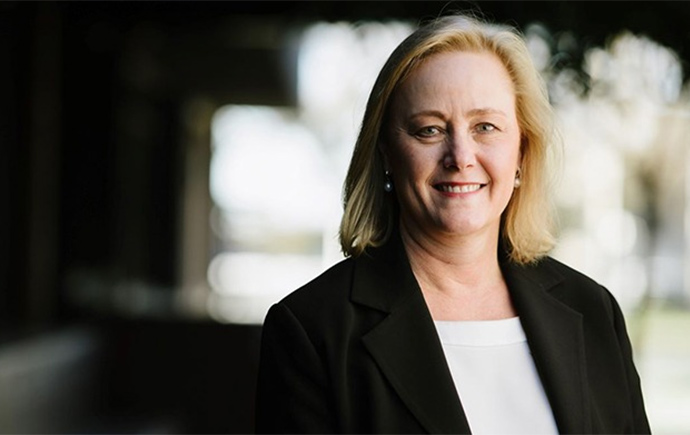Momelotinib, a drug discovered by Australian researchers over several decades, has recently been approved by the US Food and Drug Administration (FDA) for the treatment of myelofibrosis – a rare and devastating type of cancer that leads to scar tissue in the bone marrow and severe anaemia.
Momelotinib is the first and only FDA-approved medicine for both newly diagnosed and previously treated myelofibrosis patients with anaemia that addresses the key manifestations of the disease.
Research on the series that ultimately delivered Momelotinib started in the late 1990s when Professor Andrew Wilks and Dr Christopher Burns founded Cytopia Ltd which was listed in 2004 (ASX:CYT). Momelotinib later became an asset of Sierra Oncology and was ultimately acquired by GSK in 2022 for $US1.9 billion.
Shortly after the establishment of the Centre for Drug Candidate Optimisation (CDCO) in the early 2000s, one of the centre’s first projects was to assist with the development of a series of compounds being investigated by Cytopia Ltd, one of which became Momelotinib. The CDCO evaluated biopharmaceutical properties for the series to provide critical data needed for compound progression through subsequent preclinical and clinical development.
The CDCO provides infrastructure and expertise to guide and inform medicinal chemistry and it is critical that such a unique centre is maintained and made available to Australian researchers. Since July 2014, Therapeutic Innovation Australia (TIA) has provided the CDCO with financial support through the National Collaborative Research Infrastructure Strategy (NCRIS) program. The CDCO plays a critical role in the drug discovery pipeline as they fill a critical gap in drug discovery by providing translational expertise on absorption, distribution, metabolism and excretion (ADME) and pharmacokinetic (PK) properties. Identifying ADME and PK liabilities during drug discovery is essential to guide appropriate structural modifications and identify strategies to mitigate risks during development.
To date, the CDCO has worked with numerous collaborators who have progressed 42 new drug candidates into clinical development across disease indications including cancer, infectious diseases, and central nervous system disorders.
Professor Susan Charman, co-founder and Director of CDCO, said collaboration and the bringing together of expertise is a key component of the “bench to bedside” drug development process.

Photo credit to Monash University.
“Simply put, the majority of drug discoveries are unsuccessful so getting to the stage of FDA approval, particularly with a treatment for a rare and lethal disease such as myelofibrosis, is an enormous accomplishment,” Professor Charman said.
“Australia is home to world-leading scientists and facilities. But more importantly, it’s the collaborative spirit of our scientific community that is critical in catapulting a drug such as Momelotinib from an early-stage discovery to a commercial success story with the potential to significantly improve the lives of patients.
“Congratulations to Andrew, Chris and their team for this incredible achievement.”
Professor Wilks says FDA approval for Momelotinib is not only a personal victory, but a triumph for the many scientists and clinicians with whom he worked across Australia.
“Getting a drug to FDA approval is a huge undertaking involving many steps in a long journey, particularly in the early phase of discovery when you’re working to get a drug off the ground,” Professor Wilks said.
“In the early 2000s, when the CDCO was first established, the timing was right for us to collaborate with Professor Charman and her team to help progress the compound series that ultimately led to Momelotinib; these were the necessary first steps in its voyage to becoming a treatment for patients living with myelofibrosis – a rare and poorly understood disease.
“Our work with the CDCO was an early catalyst propelling the discovery programme towards its stellar clinical success.”
To Monash University’s press release, entitled ‘How Monash University scientists helped a homegrown cancer drug become an FDA-approved global success story’ click here.

